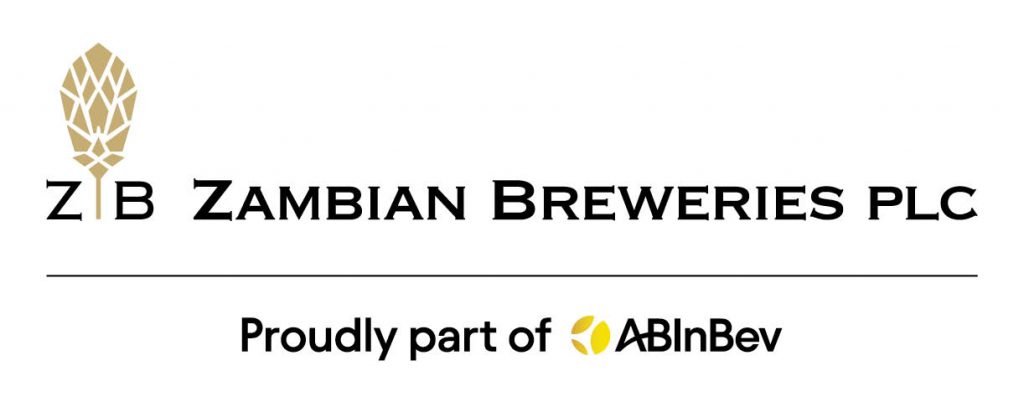
FOR IMMEDIATE RELEASE
WITH PICTURE
MAY 26, 2022
Innovative projects enhance food security in the AU’s Year of Nutrition

LUSAKA, ZAMBIA – Africa Day, commemorated each year on May 25, celebrates the successes of the African Union (AU) and acknowledges the common challenges that the continent faces in today’s interconnected global environment.
The AU has proclaimed 2022 the Year of Nutrition, drawing attention both to the plight of people in Africa lacking access to nutritious food, and to those projects and stakeholders making progress in addressing this challenge.
Malnutrition – including undernutrition and nutritional deficiencies – is a major cause of ill health, especially among women and young children. Child mortality has drastically decreased in Africa over the past three decades, but rates of malnutrition remain high, and undernutrition is an underlying cause of almost half of child deaths.
The Year of Nutrition will focus on strengthening resilience in nutrition and food security, agro-food systems, health, and social protection systems for the acceleration of human, social and economic capital development.
At AB InBev, we dream big in order to create a future with more cheers, a future that everyone can celebrate and everyone can share. As such, we have identified innovative ways in which our operations can improve food security, reduce waste, and contribute to sustainable development in communities across the African continent.
In particular, AB InBev runs a number of agriculture related programmes in several African countries of its presence with a focus on provision of skills, knowledge and new farming technology to farmers to enable a wider understanding of good agricultural practises. The skills, knowledge and farming technologies are then applied by the beneficiary farmers on the different types of crops they produce to enhance food production and productivity on their farms.
At Uganda’s AB InBev subsidiary, Nile Breweries Limited runs a programme where it partners with small holder farmers in Uganda with the aim of boosting production of food crops. Not only does Nile Breweries source its materials from the crops produced by the small scale farmers, but works closely with the farmers for enhanced production of food crops such as potatoes, onions, carrots, beans, tomatoes, sunflower, cotton, peanuts, coffee, among others.
Further, NBL recently signed a five-year agreement with the National Agricultural Research Organization (NARO), aimed at boosting cassava production in the country. The partnership seeks to address the need to improve the quality and quantity of cassava produced both for purposes of meeting the raw material needs of the brewer but also to increase the amount of the food crop available for consumption. Under the initiative, NBL provides support in the transfer and dissemination of agricultural research and development technologies from NARO to the farming communities and value chains. The partnership is expected to boost cassava production from six metric tonnes per hectare to between 25 and 50 metric tonnes per hectare.
In Mozambique, local AB InBev brewer Cervejas de Moçambique (CDM) recently signed an agreement with the Marracuene District Government to promote the cultivation of potato crops in Marracuene, where CDM has inaugurated a new brewery. The project, which accepts a cohort of 12 farmers annually, covers a cultivated area of around 18 hectares. CDM has financed the acquisition of drip irrigation technology; supported the purchase of seeds and fertilizers; helped improve soil preparation; and established a communication platform to share project learnings.
The agreement improves food security, enhances business skills amongst farmers, and builds stronger small businesses. As a result, in the first year of implementation the project allowed district farmers to achieve an all-time record in the cultivation of potatoes, with a harvest of 603 tons. This harvesting represents, in market price terms , around USD 111,000 net revenue for the farmers. The project had resulted in 102 direct jobs and 27 indirect jobs being created over the year.
In Zambia, AB InBev’s local subsidiary, Zambian Breweries (ZB) Plc has partnered with the Ministry of Agriculture, World Food Programme (WFP) and the Zambia Agricultural Research Institute in a project to boost production of sorghum among small-scale farmers in the district of Gwembe, south of Zambia. The multistakeholder partnership helps smallholder farmers access high-yielding sorghum seed, training in crop management, insurance to protect their crops from climate shocks and providing agricultural extension services and markets. Although ZB uses sorghum as a raw material to produce clear beer, the crop is also a staple food in parts of the country.
Tanzania Breweries Limited (TBL), AB InBev’s Tanzania operation, also has a similar arrangement with sorghum farmers whereby it provides support in order for the farmers to improve and increase production of the crop. The support includes provision of sorghum seeds, crop insurance, sorghum crop management training, agricultural extension services as well as improved aggregation and market access so that the farmers can maximise their sorghum crop harvest. In addition, farmers are encouraged to grow other crops like maize and sunflower for both subsistence and commercial ends.
Project Imifino, at Ibhayi Brewery in Gqeberha, South Africa, is an innovative example of how waste streams can become productive inputs fuelling value-added products and outcomes. Project Imifino takes water, heat, and anaerobic sludge waste streams produced by the brewery, and converts them into agricultural inputs which sustain wetlands and spinach beds.
The project has since developed into a commercial 2 000 m2 drip irrigation system used to grow spinach in raised beds. This system filters the water, improving its quality to the extent that it is available to be recovered for reuse in the brewery. This reduces the brewery’s water footprint significantly, creates jobs, and supports approximately R2 million of annual downstream value creation.
AB InBev’s sustainability goals include reduction of water use and lowering our climate-change impact. Projects such as these advance our progress towards those goals while creating value for local communities.
As the continent commemorates this year’s Africa Day under the theme of “The Year of Nutrition”, AB InBev Africa remains committed to driving more agricultural and food crop based projects as the ones currently running in Mozambique, South Africa, Uganda, Tanzania and Zambia to play its role in shaping a better future for the continent when it comes to food security and decent nutrition for all. We join the rest of the continent in commemorating Africa Day as we all look to a future that everyone can celebrate and everyone can share.
-Ends-
About AB InBev in Zambia
Zambian Breweries Plc is part of Anheuser-Busch InBev (AB InBev), the largest brewer in the world, with more than 400 beer brands and some 200,000 employees in over 50 countries. It is also one of the world’s largest bottlers of soft drinks.
Zambian Breweries was established in Zambia in 1968 and its product range has grown to include clear beers such as Mosi Lager, Castle, Carling Black Label, Eagle beer, Stella Artois and Budweiser.
For media inquiries please contact:
Gillian Langmead at Langmead & Baker Ltd
+260 979 060705
info@langmead.com
